This article contains spoilers for Guardians of the Galaxy Vol. 3 in its discussion of how James Gunn imbues the film with friendship and humanity.
It’s ironic, but the most human and most grounded of the Marvel franchises is the one with the talking raccoon. Guardians of the Galaxy Vol. 3 retains a compelling humanity that is often absent from Marvel Studios productions. At its core, Guardians of the Galaxy Vol. 3 is a superhero movie about the power of friendship.
According to James Gunn, Guardians of the Galaxy Vol. 3 is “not about saving the universe — it’s about the Guardians saving themselves.” Gunn is perhaps exaggerating. Much like the climax of Guardians of the Galaxy Vol. 2 heightens its father-son conflict to a universal scale, Guardians of the Galaxy Vol. 3 features its fair share of epic action. The movie is bookended by brutal assaults on the community of Knowhere, and the High Evolutionary (Chukwudi Iwuji) blows up a planet at the end of the second act.
Still, the story remains anchored in a very human set of stakes that are easy to grasp and to follow. During the opening action set piece, Rocket (Bradley Cooper, Sean Gunn) is horrifically injured. The bulk of the movie’s plot follows his friends, led by Peter Quill (Chris Pratt), as they try to find a way to save him. Along the way, the characters get drawn into larger conflicts, but Rocket is always the movie’s focus, with Gunn intercutting the primary plot with flashbacks of Rocket’s origin.
Guardians of the Galaxy Vol. 3 is powered by a real emotional investment in Rocket’s story, to the point that critic Kyle Buchanan quipped the film was “what if A Little Life but raccoon?” The movie earnestly and sincerely expects the audience to invest in the fate of Rocket and his friends, including a set of computer-generated talking animals and performers in a variety of different prosthetics. It treats these characters and their stories as inherently worthwhile, which is to its credit.
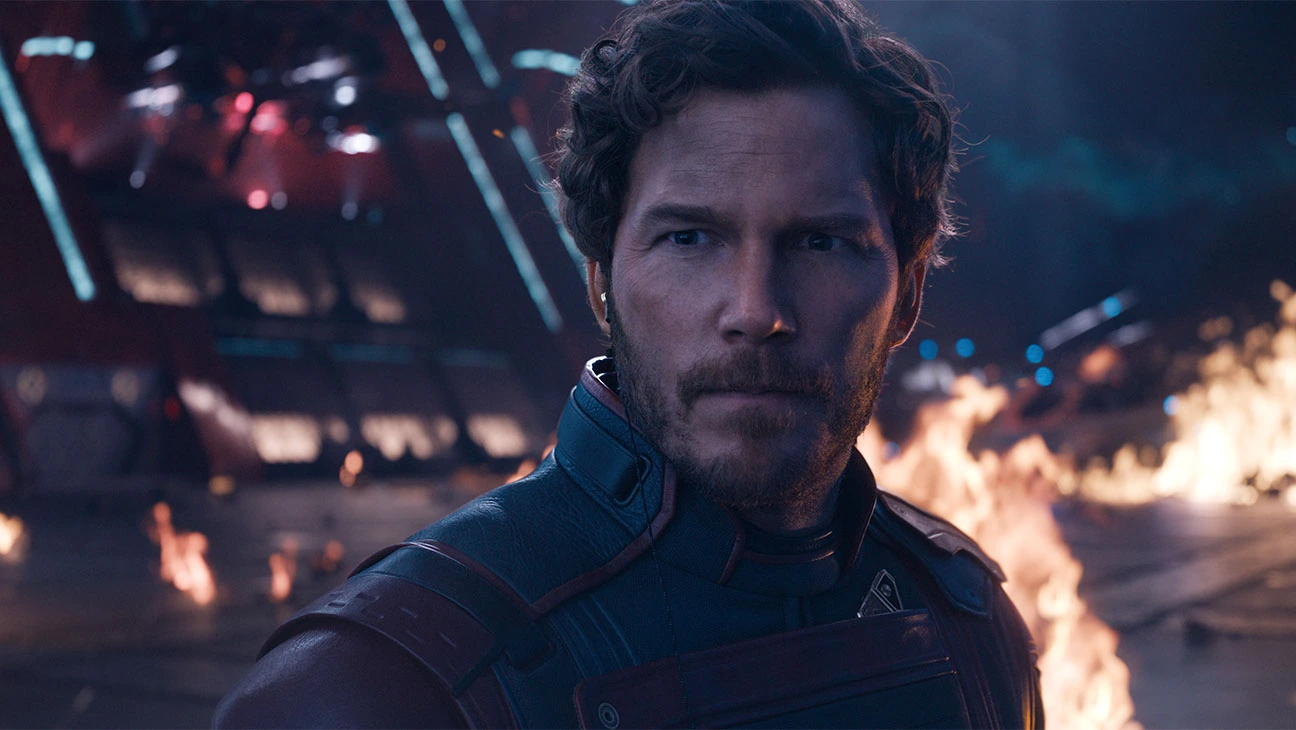
At a point where superhero movies can often feel too flippant and too detached from humanity, Guardians of the Galaxy Vol. 3 is a reminder of what a talented director with a strong artistic vision can accomplish within the confines of the larger franchise machine. In recent years, Marvel Studios has struggled to cultivate a reputation as a company friendly to creatives with strong visions, and Gunn stands out as the one director at the studio consistently able to realize his vision.
Part of this is because Gunn puts a lot of himself into the film. Guardians of the Galaxy Vol. 3 is a movie about Rocket, and Gunn has talked openly about how Rocket is effectively an author surrogate. “Rocket’s the one I feel close to, so this is my story,” he explained of the film. However, there is more to it than that. Guardians of the Galaxy Vol. 3 is a movie that feels personal in a way that these franchise movies are rarely allowed to be, and a large part of that extends beyond the plot itself.
The original Guardians of the Galaxy was recognizable as the work of a director with a distinctive vision, but one beholden to the larger demands of the shared universe. Most obviously, Guardians of the Galaxy is the film that is tasked with introducing Josh Brolin as Thanos and first explaining the concept of “Infinity Stones,” two ideas that would prove essential to the larger “Infinity Saga” that would culminate with Avengers: Infinity War and Avengers: Endgame.
It is to Gunn’s credit that these elements don’t derail Guardians of the Galaxy in the same way that, for example, introducing Kang the Conqueror (Jonathan Majors) sabotaged both Loki and Ant-Man and the Wasp: Quantumania. Indeed, Gunn shrewdly makes these obligations work for him. Thanos is redefined as a James Gunn villain, an abusive father like Ego (Kurt Russell) from Guardians of the Galaxy Vol. 2, Auggie Smith (Robert Patrick) from Peacemaker, or even the High Evolutionary from Guardians of the Galaxy Vol. 3.
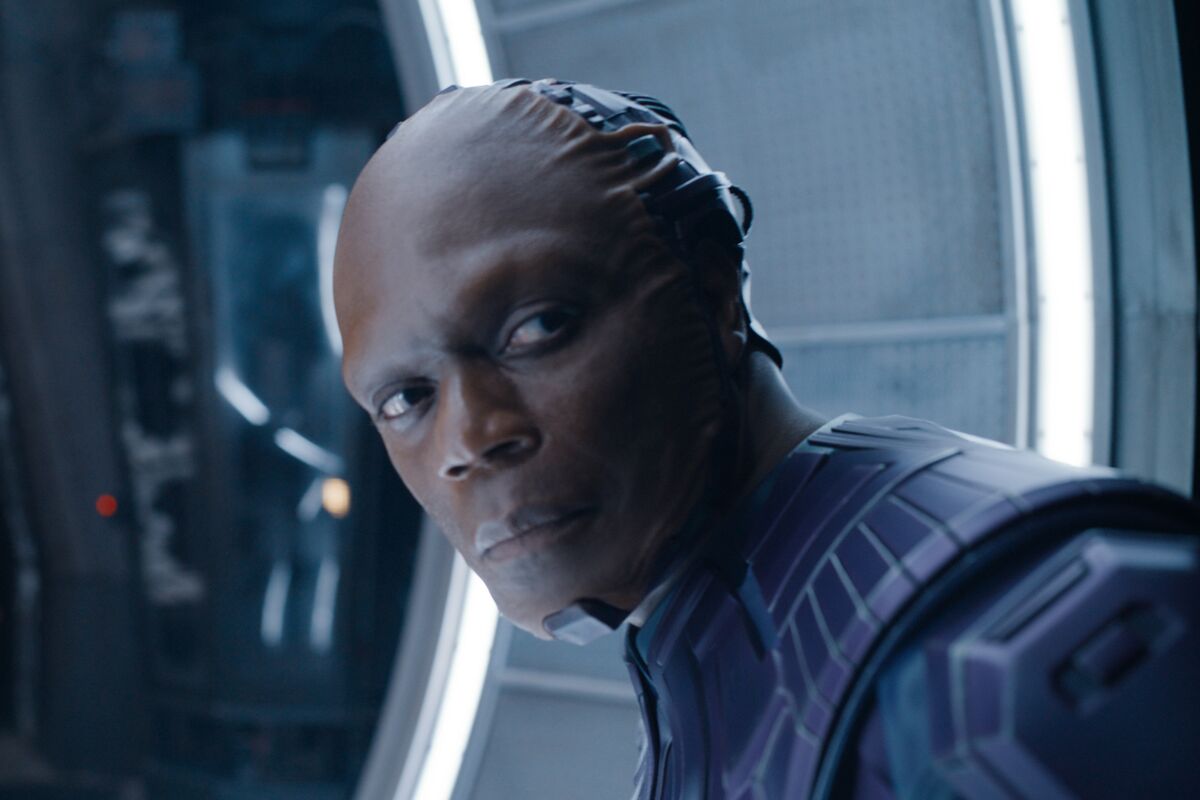
It’s arguable that Gunn’s approach to Thanos was a large part of what worked about the character in Infinity War and Endgame. After all, the emotional crux of Thanos’ arcs in Infinity War and Endgame hinge on his troubled relationships with his daughters Gamora (Zoe Saldaña) and Nebula (Karen Gillan), which are established and developed in Guardians of the Galaxy and Guardians of the Galaxy Vol. 2. Somehow, forcing Guardians of the Galaxy to tie into Thanos helps the larger franchise.
However, Gunn enjoyed much greater freedom in Guardians of the Galaxy Vol. 2, a film that avoids tying into the larger shared universe in any substantive way. It exists in a strange lacuna, to the point that it quietly takes place months after the original film, despite being released three years later. Guardians of the Galaxy Vol. 3 doesn’t have quite as much freedom, in that it is tied to the events of Infinity War and Endgame, specifically the death and resurrection of Gamora.
Still, Guardians of the Galaxy Vol. 3 exists apart from the larger continuity. There is, for example, no reference to Thor’s (Chris Hemworth) time with the team, as set up at the conclusion of Endgame and depicted in Thor: Love and Thunder. It’s hard to reconcile the portrayal of Peter Quill in Love and Thunder with his arc in The Guardians of the Galaxy Holiday Special and Guardians of the Galaxy Vol. 3. The only reference to Thor is a photo of him in the closing credits, from the climax of Infinity War.
Guardians of the Galaxy Vol. 3 is free from the sorts of cameos, references, and in-jokes that define so many Marvel Studios films. The opening studio logo is composed entirely of footage, concept art, and script material from the previous Guardians of the Galaxy films. This is something that happens rarely; the most obvious recent example was the tribute to Chadwick Boseman at the start of Black Panther: Wakanda Forever, which was a very special circumstance.
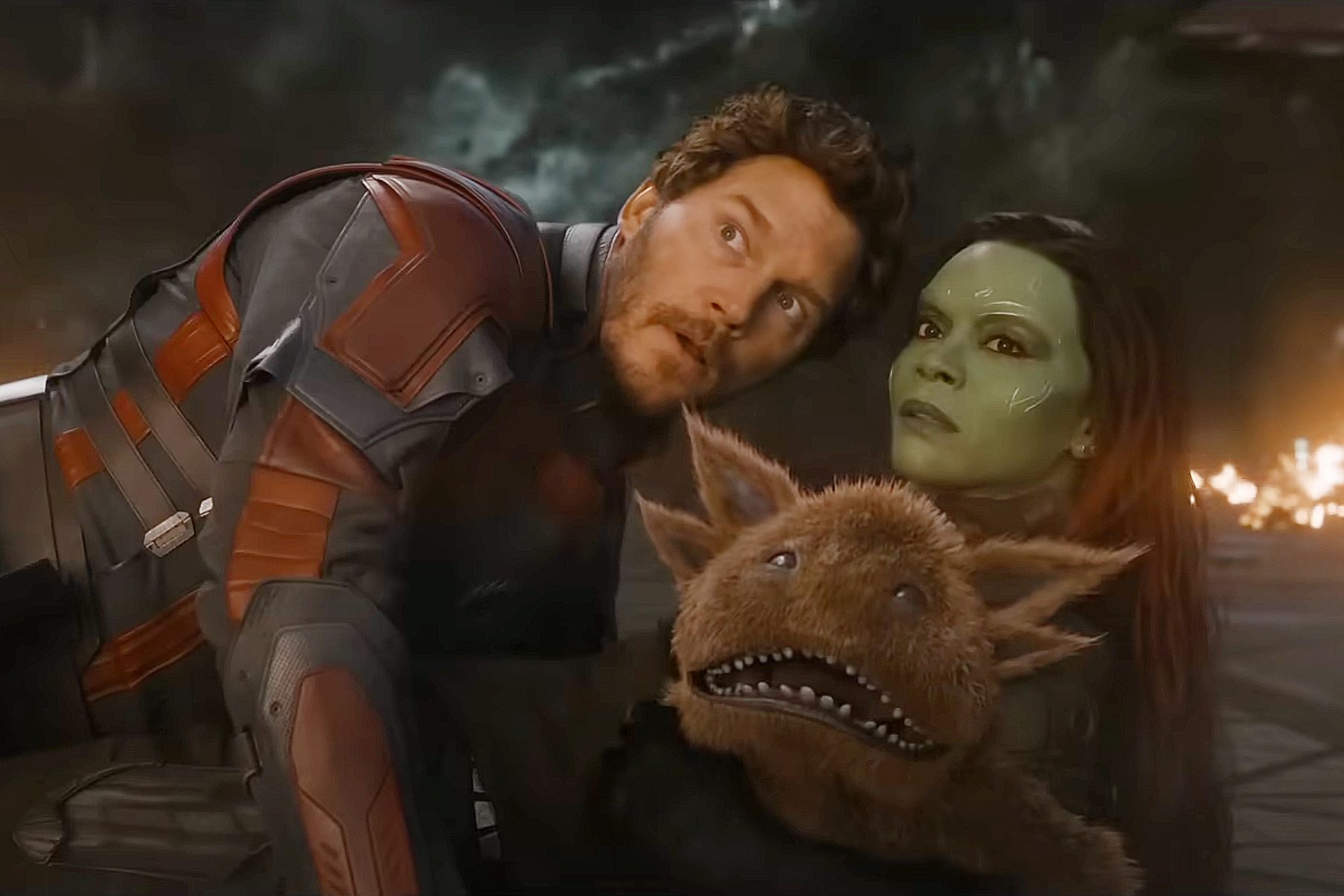
Guardians of the Galaxy Vol. 3 is refreshingly unbeholden to the corporate machinations of Marvel Studios. It doesn’t feature any surprise appearances from other superheroes like Captain Marvel (Brie Larson) or Starfox (Harry Styles). It doesn’t waste time teasing upcoming projects like Secret Invasion or The Marvels. As such, Guardians of the Galaxy Vol. 3 is its own self-contained thing. It’s not servicing anything beyond its own interests, making it more compelling than a lot of these films.
Of course, the film still features a wide variety of continuity nods, but primarily to the earlier entries in the sub-franchise. It is a celebration of the Guardians of the Galaxy films and of James Gunn’s work. The most endearing cameos feature returning minor figures from the previous two movies, like Howard the Duck (Seth Green), the Broker (Christopher Fairbank), and Quill’s grandfather (Gregg Henry). Even Yondu (Michael Rooker) appears briefly as a vision to Kraglin (Sean Gunn).
However, many of the film’s cameos are about more than just recognizable characters. Thematically, Guardians of the Galaxy Vol. 3 is about carving out humanity in a universe dominated by intellectual property. As such, it’s fitting that Gunn makes an effort to include actors rather than simply bringing back established characters. Nathan Fillion and Lloyd Kaufman are frequent collaborators with Gunn who already had small roles in Guardians of the Galaxy, but Gunn brings them back as new characters.
Guardians of the Galaxy Vol. 3 is populated with actors who have worked with Gunn before. Lylla is played by Linda Cardellini, who worked with Gunn on two live-action Scooby Doo films. Daniela Melchior plays a manager named Ura, reteaming with Gunn after their collaboration on The Suicide Squad. Gunn’s wife, Jennifer Holland, plays a security official. While not major roles, these aren’t blink-and-you-miss-it appearances. Gunn gives these actors things to do. Many have multiple scenes.
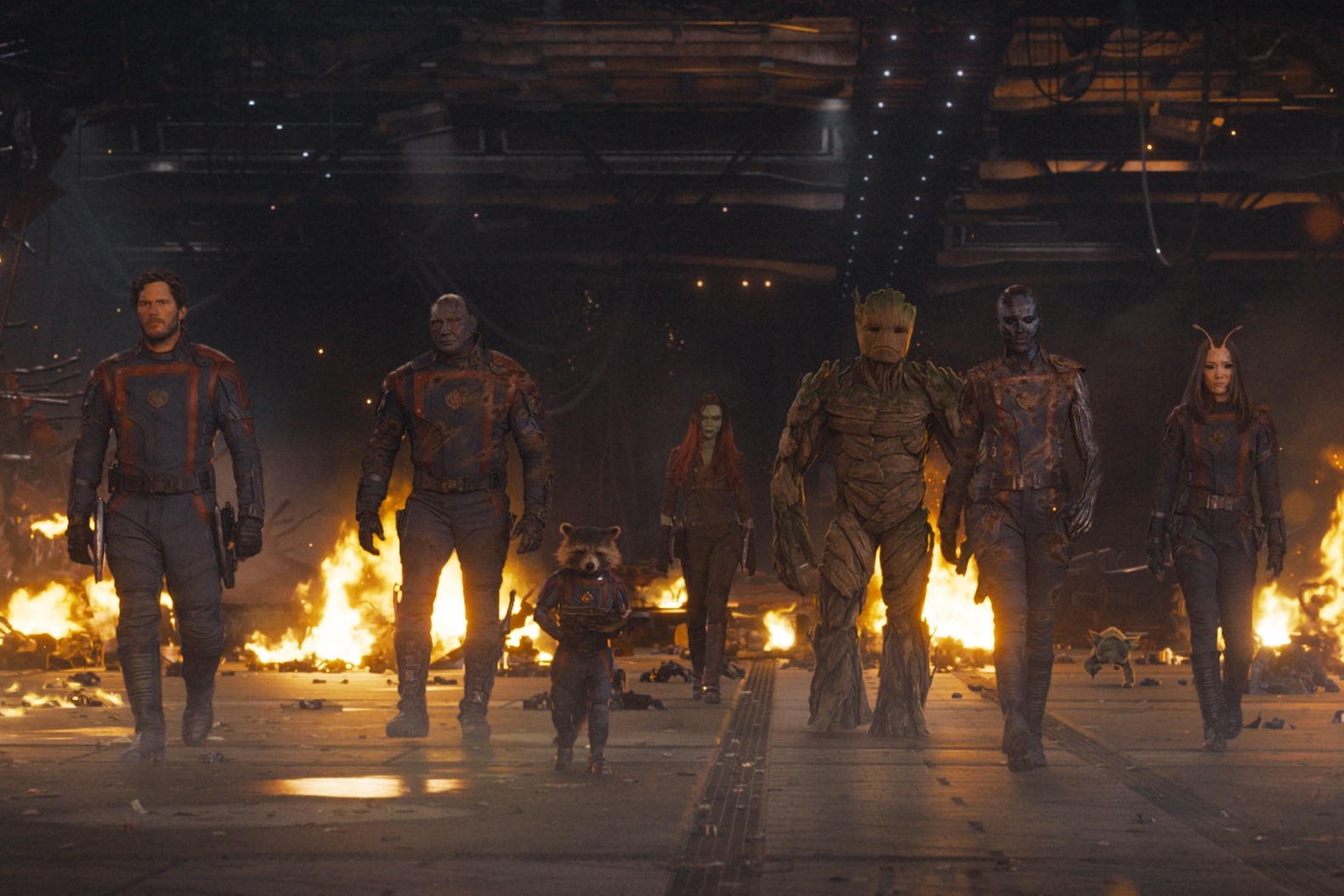
There’s something very warm and very human about all this. Gunn gives Nathan Fillion a small but charming supporting role as a “corporate shill,” allowing him to interact directly with the Guardians, get a big action set piece, and even have a recurring joke to play. Guardians of the Galaxy Vol. 3 treats the actor Nathan Fillion the same way that Ant-Man treats the character of Sam Wilson (Anthony Mackie) or Doctor Strange in the Multiverse of Madness treats the character of Charles Xavier (Patrick Stewart).
It feels celebratory, particularly in the context of the project’s history. Gunn was fired by Disney following a bad-faith outrage campaign. He has talked about how important it was that people like Chris Pratt, Dave Bautista, and Zoe Saldaña stood by him. The credits for Guardians of the Galaxy Vol. 3 include a “special thanks” for Bobcat Goldthwait, who threatened to remove his voice rights from Disney in support of Gunn.
The Marvel Cinematic Universe can often feel like a collection of corporately managed intellectual property run wild, with no humanity or individuality guiding it. There is a sense that human beings are often secondary to the demands of the brand, as reflected in the departure of talent like Edward Norton, Patty Jenkins, or Edgar Wright. In some ways, Marvel Studios can feel like the Orgosphere from Guardians of the Galaxy Vol. 3, a monstrous machine made of meat.
Guardians of the Galaxy Vol. 3 is about the importance of friendship and humanity, the notion that maybe people are more important than proprietary rights and corporate ownership. That’s the literal plot of the film as it concerns Rocket, but it’s also reflected in the movie’s casting and storytelling. It’s a theme threaded through the production. It has an obvious resonance for a director who almost didn’t get to make his movie because of the machinations of the studio.
At a time when blockbusters are becoming increasingly impersonal, where it can feel like the only thing that studios care about is preserving the larger brand, Guardians of the Galaxy Vol. 3 is a welcome reminder that it’s possible for these films to have a real heart and to celebrate the people who make these machines run. That humanity affords Guardians of the Galaxy Vol. 3 a depth that is unfortunately rare for movies like this.

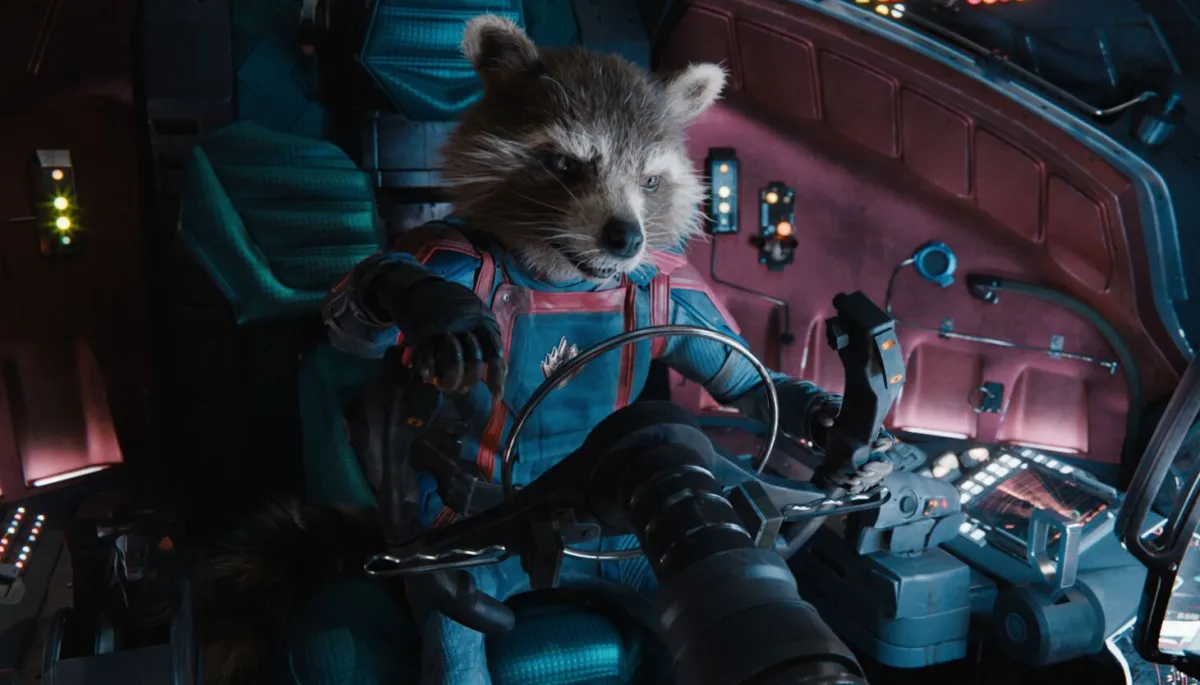

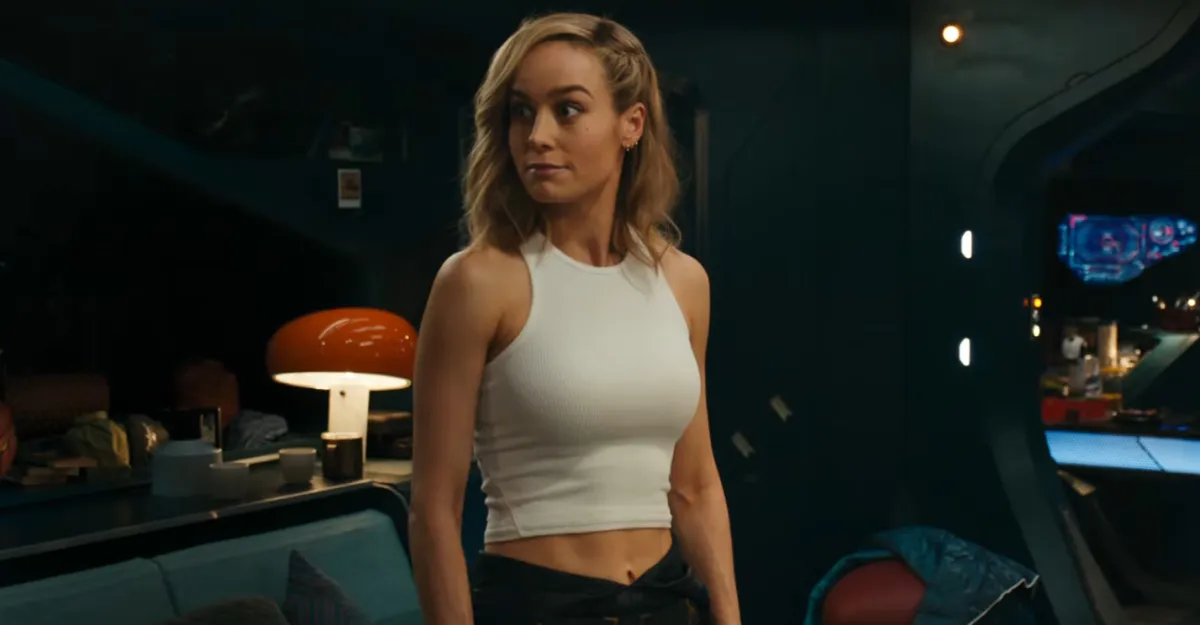


Published: May 7, 2023 11:00 am